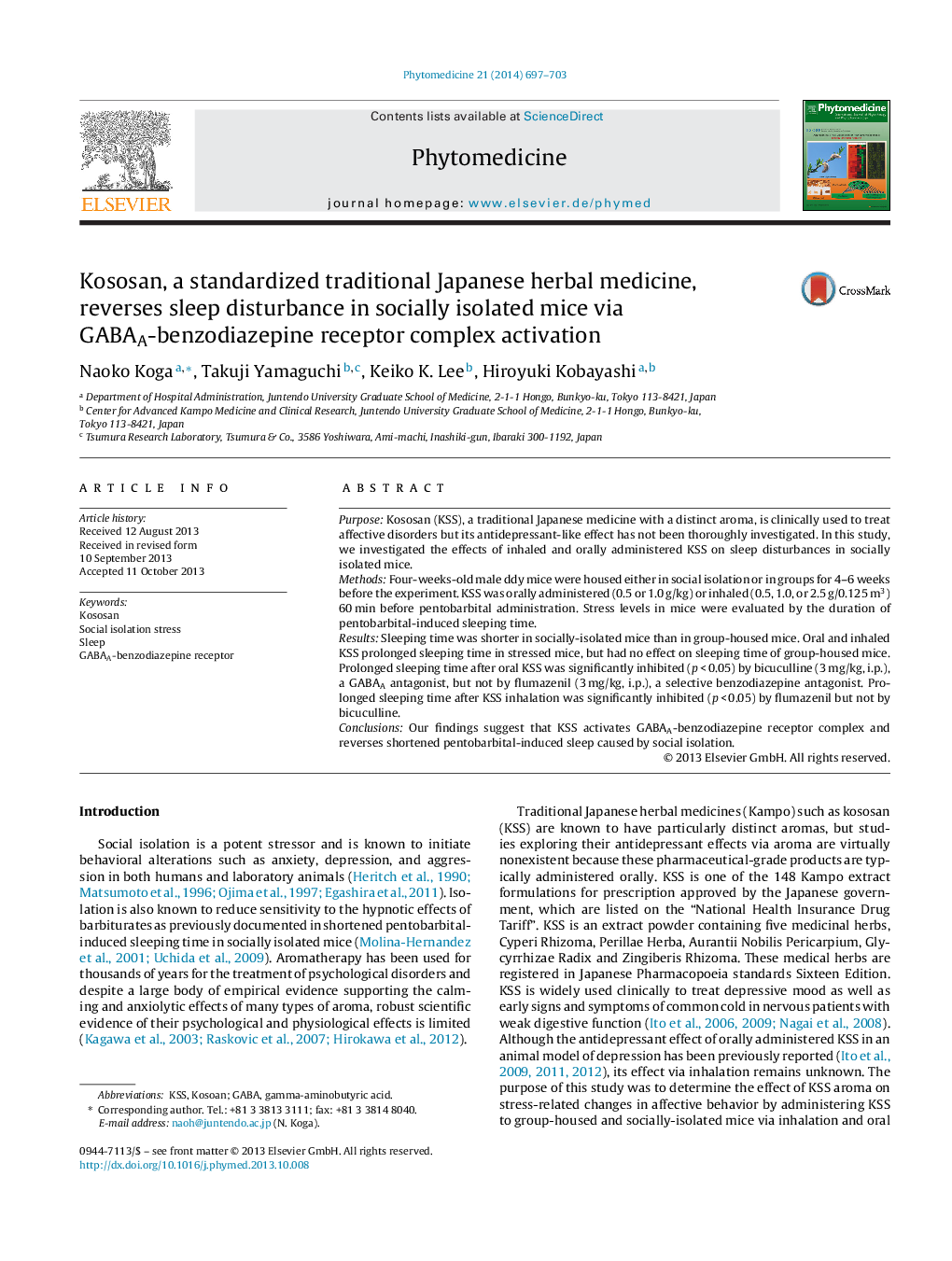| Article ID | Journal | Published Year | Pages | File Type |
|---|---|---|---|---|
| 2496518 | Phytomedicine | 2014 | 7 Pages |
PurposeKososan (KSS), a traditional Japanese medicine with a distinct aroma, is clinically used to treat affective disorders but its antidepressant-like effect has not been thoroughly investigated. In this study, we investigated the effects of inhaled and orally administered KSS on sleep disturbances in socially isolated mice.MethodsFour-weeks-old male ddy mice were housed either in social isolation or in groups for 4–6 weeks before the experiment. KSS was orally administered (0.5 or 1.0 g/kg) or inhaled (0.5, 1.0, or 2.5 g/0.125 m3) 60 min before pentobarbital administration. Stress levels in mice were evaluated by the duration of pentobarbital-induced sleeping time.ResultsSleeping time was shorter in socially-isolated mice than in group-housed mice. Oral and inhaled KSS prolonged sleeping time in stressed mice, but had no effect on sleeping time of group-housed mice. Prolonged sleeping time after oral KSS was significantly inhibited (p < 0.05) by bicuculline (3 mg/kg, i.p.), a GABAA antagonist, but not by flumazenil (3 mg/kg, i.p.), a selective benzodiazepine antagonist. Prolonged sleeping time after KSS inhalation was significantly inhibited (p < 0.05) by flumazenil but not by bicuculline.ConclusionsOur findings suggest that KSS activates GABAA-benzodiazepine receptor complex and reverses shortened pentobarbital-induced sleep caused by social isolation.
Graphical abstractFigure optionsDownload full-size imageDownload high-quality image (126 K)Download as PowerPoint slide
